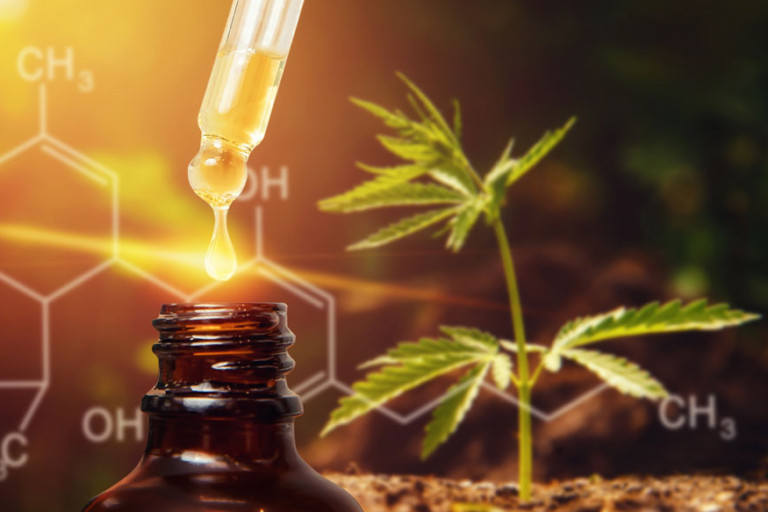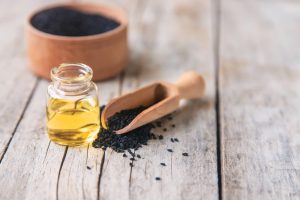In honor of National CBD Month, VR looks at addressing the endocannabinoid system.
Panelists:
Rich Barnes, COO and Founder, Slumber CBN, Denver, CO, www.slumbercbn.com
Ramona Billingslea, Marketing Manager, Betsy’s Health Foods, Houston, TX, www.betsyhealth.com
Zora DeGrandpre, ND, Leafreport, Tel Aviv, Israel, www.leafreport.com
Yasamine Farshad, ND, CH, Practitioner Education Manager, Wise Woman Herbals, Creswell, OR, www.wisewomanherbals.com
Laura Fuentes, CEO and Co-founder, Green Roads, Deerfield Beach, FL, www.greenroads.com
Grace Kaucic, Senior Communications Manager, Bluebird Botanicals, Louisville, CO, www.bluebirdbotanicals.com
Vanessa Pavey, ND, Education Scientist, Life Extension, Ft. Lauderdale, FL, www.lifeextension.com
Miles Sarill, MSc, Scientist, CV Sciences, San Diego, CA, www.cvsciences.com
Michael Wong, President, Provida Health, Ft. Lauderdale, FL, www.providahealth.com
In the 1960s, Dr. Raphael Mechoulam identified tetrahydrocannabinol (THC), a psychoactive component present in Cannabis sativa. Over two decades later, Mechoulam discovered ligands for the cannabinoid receptor, proving the existence of the endocannabinoid system, or ECS.
We now know that endocannabinoid receptors are found throughout the body, and are involved in such mechanisms and functional areas as inflammation, sleep, mood and stress, immunity, pain and more.
While endocannabinoids, are by definition, produced by the body (“endo”) using omega-6 and omega-3 fats, there are some very well-known phyto-cannabinoids, such as CBD, and some newer entrants, such as CBN. Without question, sales of products featuring hemp-derived cannabinoids have hit a fever pitch.
The Registrar at National Day Calendar proclaimed National CBD Month to be observed throughout January annually to celebrate the increased availability and plentiful products helping people around the world. To celebrate, we assembled a group of experts to discuss CBD, addressing the ECS, and what it means for retail.
VR: Briefly explain what is the ECS?
DeGrandpre: The ECS is the natural biological system that helps maintain homeostasis or balance. The ECS plays a role in maintaining this balance in the immune response, digestion, sleep, memory and nervous system. Endocannabinoids like AEA and 2-AG bind to cannabinoid receptors, CB1 and CB2 and can affect reactions like pain perception, appetite, sleep quality and memory function. Cannabinoids, like CBD, also bind to these receptors, moderating the response to endocannabinoids.
Barnes: The ECS is a cell signaling system within the body of all mammals. This system of physiology is active to maintain health and balance and respond to our environment. It is active in your body from before the time you are born; it is not a response to consumption of cannabinoids but it is the reason the cannabinoids actually work in the body. Your body makes cannabinoids on its own (endocannabinoids) but the recent access to exo-cannabinoids (CBD, CBN, CBG, THC) has allowed us to utilize low doses to up-regulate our bodily systems. The endocannabinoid system helps with literally every aspect of enhancing and balancing the body.
Sarill: Ligands of the ECS in the brain serve the role of neurotransmitters, where they bind to cannabinoid receptors, which kick off cellular signaling events that often result in physiologic or neurologic changes. For example, anandamide (AEA) was the first endocannabinoid discovered in 1992 and typically binds to Cannabinoid Receptor 1 (CB1) present on neurons, where it can control everything from pain sensitivity to hunger and mood. AEA is derived from arachidonic acid, an omega-6 essential fatty acid. AEA is then taken up by the cell and degraded by enzymes such as fatty acid amide hydrolase (FAAH), a possible target of CBD from hemp.
It is important to note that endocannabinoids function less as systemic hormones and instead modulate the function of a local cellular milieu. Nonetheless, their function can be described as essential for maintaining homeostasis in the body as it relates to inflammation, metabolism and neurotransmission. The ECS is highly responsive to changes in lifestyle and diet.
Billingslea: I liken the ECS to the thermostat in one’s house. If things need to be heated up to keep things in balance, it turns up the heat. If things need to be cooled down, it amps up the cooling system. In other words, the ECS is essential to the body maintaining a healthy state of homeostasis.
VR: What is a general takeaway for retailers about plant-based cannabinoids?
Fuentes: The general takeaway is fairly simple: Your body can become deficient in any compound it needs. CBD oils, edibles and topicals give you a way to support your body’s ECS. Just like sunshine or supplements can give you vitamin D, plants can give your body the cannabinoids it needs.
Pavey: In the last year, more interest has been given to the ECS’s unique benefits. And, with this growing awareness many people would like to take advantage of these benefits but might be concerned with using CBD-based products. The good news is there are other safe, effective, and natural ways to support the ECS by using nutrients that decrease the breakdown of our naturally produced endocannabinoids and can target the desirable cannabinoid receptors without the use of CBD, hemp or THC.
Billingslea: Consumers are always looking for the next big thing, that one-pill wonder that is going to solve all their ills. Even though we know that kind of product doesn’t exist, we retailers can easily fall victim to the same “trap” of jumping on the bandwagon of the next popular thing.
That being said, understanding the potential role of plants that provide endocannabinoid support is an important development in the supplement industry. We have an opportunity to help people really feel better by matching them with plant-based cannabinoids to add to their existing supplement programs.
VR: What is the primary functional area that CBD and other phyto-cannabinoids are being marketed for (or should be) at retail?
Billingslea: It seems like most products are being marketed for pain. With the current war on opioids and the mass concern about pain, it seems like this is a trend that isn’t going anywhere anytime soon. Because things like inflammation and immunity are less tactile, focusing on the areas of health consumers most relate to seems like the smartest way to market the benefits of phyto-cannabinoids to the general public. We need to meet them where they understand their needs are, not from our perspective.
However, we also have the opportunity to educate when working with consumers. Since the ECS affects the entire body, helping them understand ways to balance the body with nutrition from all angles, including omega support, should be as important as introducing them to phyto-cannabinoids alone. In fact, we would be remiss if we limited our education to only one kind of supplement.
VR: How do dietary omega-3s support the ECS and, more precisely, the health of consumers?
Farshad: In regard to the endocannabinoid system, fatty acids are very important in supporting the body’s ability to make endocannabinoids, particularly polyunsaturated fatty acids which include omega-3 and omega-6 fats. This means that a deficiency in important fatty acids may be associated with the body not making a sufficient number of endocannabinoids to help with homeostasis support. Supplementing with fish oil or increasing consumption of wild-caught fish such as salmon is a great way to get some of these important fatty acids, particularly omega-3s, in order to help with this process.
VR: What are other important foods and nutrients that beneficially support the endocannabinoid system?
Kaucic: There are a variety of plants that contain compounds which can interact with and support the ECS. For example, echinacea contains compounds called alkamides that are agonists of CB2 receptors. Conversely, cacao is known to inhibit the FAAH enzyme and thus increase levels of anandamide, an endocannabinoid.
Wong: Terpene rich foods can also have a major impact on how the body assimilates cannabinoids. As we know, the entourage effect occurs when all parts of the plant are used including cannabinoids, terpenoids and flavonoids. Ingesting beta-caryophyllene from black pepper, for example, will enhance the effects of CBD and offset the effects of THC.
Barnes: In general a diet which is more lipid-based, as opposed to glycogen- based, will enhance the function of the ECS. Maintain low carbohydrate intake and focus on “good” fats: avocados, salmon and organically fed beef. Fat should not be avoided with the goal of transforming or teaching the body to live on ketones as opposed to glycogen (sugar). Sugar increases inflammation in the body and cannabinoids reduce inflammation, so the conflict between the two is obvious.
VR: While communicating the benefits of hemp and CBD can be done, how can retailers (1) communicate something as complex as the ECS, and (2) give good guidance to customers as to what products to look for?
Wong: It’s still a challenge. There are doctors still yet unfamiliar with the ECS, so in my opinion it’s better to keep it simple. It brings your body into homeostasis, balancing your health, relieving pain, reducing inflammation instigating a cascade effect of better health. You’ll feel better. Just make sure you use a consistent, high-quality, full-spectrum product.
Fuentes: Carrying high-quality products that actually work is not only better for your customers, it’s better for your business. In other words, effective products bring repeat purchases! Unfortunately, the CBD marketplace is so cluttered that it’s often hard to tell good quality brands like Green Roads from those just trying to make a quick buck. Look for full-panel independent lab tests and COAs (certificates of analysis) on every batch, and QR (quick response) codes on packaging that promote transparency.
Sarill: With such a biochemically complex subject as the ECS, sometimes it helps to familiarize the topic by comparing it to better known analogies. Although not every shopper of vitamins is expected to be a neurobiologist (surprise!), one could still compare the ECS to another neurotransmitter system as, say, serotonin. Just as we have serotonin and serotonin receptors that are involved with mood, we have endogenous cannabinoids and cannabinoid receptors. Linking such an analogy to health outcomes in balanced pain, inflammation, mood and sleep further connects the dots.
As it relates to guidance surrounding hemp extracts, underscoring quality is important. Given the spike in both the popularity of CBD and the number of companies offering CBD, it is important to be vigilant about what a customer is ingesting.
VR: Where is the hemp grown? What cultivar of hemp is used? How is it extracted? Is the product validated by third-party laboratory analysis? Is the product considered generally recognized as safe (GRAS)? Is the company that makes the hemp extract associated with trade groups (e.g. U.S. Hemp Roundtable) that advance hemp-friendly legislation? Does the company sponsor clinical research on their ingredient? All of this matters.
Pavey: Scientists are discovering the importance of maintaining a healthy ECS to support mood, memory, appetite, weight management, sleep, pain perception and inflammation.
Retailers can help communicate these benefits by staying informed with current research, asking questions to manufacturers producing these targeted products, and seeking out alternative nutrients. Hemp oil and CBD are one way of supporting an active ECS, but there are other natural, safe and trusted nutrients that can also benefit this important body system.
Billingslea: I think we explain things best when we keep it simple. Using analogies can be helpful. If consumers trust you, they will pretty much trust when you say something is important. They may not worry about why so much as they will want to know specifically what they can do to help themselves.
We have to ask the right questions of our customers in order to match them with the best products for their specific goals and needs. For example, a consumer who eats lots of healthy fish probably doesn’t need a fish oil supplement.
VR: Briefly, what is the most exciting research right now into plant-derived cannabinoids?
Kaucic: There’s still a great deal of research uncovering more phytocannabinoids that have been previously unknown. Earlier this year, scientists discovered and isolated two new cannabinoids from the cannabis plant: tetrahydrocannabiphorol, aka THCP, and cannabidiphorol, aka CBDP.
This discovery brings the grand total of known phytocannabinoids in cannabis up to nearly 150, although there may be many more that are still unknown. Through examination of the new cannabinoids’ molecular structures, the researchers discovered that both THCP and CBDP have elongated side chains with seven links, compared to THC and CBD which both have five links each. These longer side chains and additional links play a major role in how these cannabinoids interact with the body, because they have an even stronger binding affinity to both CB1 and CB2 receptors.
This means that THCP, in particular, could be a much bigger factor in how people respond to cannabis than ever considered before.
Pavey: The most exciting research right now is learning more about the potential roles of dietary cannabimimetic nutrients from spices and vegetables. Discovering nutritional ways of activating CB2 receptors may provide additional options for those looking to gain the benefits of a healthy ECS.
VR: For manufacturers, briefly discuss one of your top products (or ingredients) that beneficially modulate aspects of the endocannabinoid system?
Fuentes: When it comes to manufacturing, we stand by our [Green Roads] CBD oil as the best in the industry. While many health and wellness brands slap their own logo on a standard oil from a single manufacturer, we make a proprietary blend that offers a warm, sweet taste, palatable texture and striking results.
Our commitment to quality starts with the American farms that grow our hemp plants. These plants come with certificates of analysis. A team of licensed pharmacists formulates our products. Both our extracted raw materials and our whole finished products are lab-tested for purity. We make the test results available through a QR code on every package as part of our commitment to transparency.
Sarill: Recently, CV Sciences expanded outside of hemp extracts to other ingredients with the potential to modulate the ECS.
We are very excited about palmitoylethanolamide, or PEA for short. PEA is an endocannabinoid-like lipid mediator found both within the body and from certain foods and is demonstrated to regulate pain signaling and inflammation. Studies from the 1970s confirm its role in immune prophylaxis.
For this reason, CV Sciences utilizes PEA in a daily immune wellness supplement blend called CV Defense.
Kaucic: Bluebird Botanicals’ Complete Concentrated CBD Oil was designed to powerfully support the ECS. This blend features both raw and heated cannabinoids, including CBD and CBDA, plus an additional serving of steam-distilled terpenes—all of these ingredients work synergistically together to maximize the entourage effect and greatly impact the ECS. This is essentially the most comprehensive hemp product available on the market.
Barnes: Slumber utilizes high doses of cannabinol (CBN) to focus primarily on relaxation and sleep. We provide a large dose of a very pure form of CBN with no other synthetic enhancements to make people get to sleep quicker and enjoy a more restful night, with zero psychotropic effect. The quality of sleep (duration, depth) is often underestimated and this cannabinoid binds with the CB2 receptor to provide the user with an organically induced longer sleep with no hangover. The goal is to make people wake refreshed. We have numerous users who have switched to Slumber CBN and get better sleep now, with no hangover. Additionally they are now dreaming again.
VR: What do you predict is coming down the pike, natural product-wise, that retailers should be excited about?
Sarill: The science is pointing toward a great connection between the ECS, the gut microbiome, and lipid mediators associated with omega-3 and omega-6 fatty acids. This grand unified theory (GUT) has the potential to explain why CBD can help so many people! Additionally, we are excited about other cannabinoids from hemp, such as CBDA, endocannabinoid-like mediators available as dietary supplements such as PEA, and probiotic strains that interact with the ECS. There is a lot to look forward to in the next few years as this science continues to develop.
Barnes: Like fingerprints, everyone’s ECS is different and a CBD tincture is not the answer for everyone. The distribution of minor cannabinoids and the focused results, sleep, inflammation, pain, memory and so forth, on the ECS can be fine tuned for the consumer.
Dosing and bio-availability whether it is a pill, tincture, gummy or tea are becoming very diverse, so the retailer who keeps up with all of these options will be the one creating a loyal customer following. The days of “I only sell full-spectrum tincture” may be changing as consumers want more choices and they are smarter. The cost is low enough now that it is not cost prohibitive for consumers to sample and try the right combination of cannabinoids to attain the desired effect.
Wong: Functional mushrooms + cannabinoids. You heard it here first.
VR: What would you like to add?
Barnes: More than 30 percent of the entire population suffers from sleep issues and we see that as an untapped market for an organic sleep aid with no side effects. If retailers are not carrying an organic CBN-based sleep aid then they should.
Billingslea: As retailers, our biggest challenge with CBDs is to make people understand that they are not a miracle pill but another key part in a complete nutritional program. Whether through very good eating, or combining eating and lifestyle choices with supplements, consumers need to approach better health with the correct perspective, that it is a multi-layered approach with many possible solutions. VR












